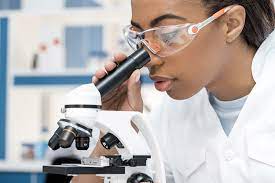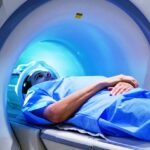
BSc MLS Course Admission & Fees – When it comes to planning your education and career, understanding the admission process and associated fees is crucial. In this comprehensive guide, we will delve into the world of BSc MLS (Bachelor of Science in Medical Laboratory Science) course admission and fees. Whether you’re a prospective student or simply curious about this field, we’ll provide you with valuable information to make informed decisions.
Embarking on a journey towards a career in Medical Laboratory Science is both exciting and rewarding. This article will walk you through the admission requirements and fees associated with pursuing a BSc MLS degree. We’ll cover everything from eligibility criteria to financial considerations, ensuring you have a clear understanding of what lies ahead.
Why Choose BSc MLS?
Before delving into the admission details, let’s explore why BSc MLS is a desirable choice for many aspiring healthcare professionals.
-
In-Demand Profession
The field of medical laboratory science is in high demand, with healthcare institutions relying on skilled professionals to conduct diagnostic tests accurately.
-
Diverse Career Opportunities
A BSc MLS degree opens doors to a wide range of career paths, including clinical laboratory technologists, blood bank supervisors, and microbiologists.
-
Contributing to Patient Care
By working behind the scenes, BSc MLS professionals directly impact patient care and outcomes by providing accurate test results to doctors and clinicians.
Admission Requirements
Eligibility Criteria
To kickstart your journey towards a BSc MLS degree, you need to meet specific eligibility criteria. These typically include:
- Educational Qualifications: A high school diploma or equivalent with a strong foundation in science subjects, including biology and chemistry, is usually required.
- Entrance Exams: Some institutions may require you to take standardized tests like the SAT or ACT, while others might have their own entrance exams.
- Prerequisite Courses: Completing prerequisite courses in subjects such as biology, chemistry, and mathematics is often necessary.
Application Process
Once you meet the eligibility criteria, the next step is the application process. Here’s what you can expect:
- Application Form: You’ll need to fill out an application form, which can usually be done online through the university’s website.
- Transcripts: You’ll be required to submit your high school transcripts along with any standardized test scores.
- Letters of Recommendation: Some institutions may ask for letters of recommendation from teachers or mentors.
- Statement of Purpose: Writing a compelling statement of purpose explaining your interest in Medical Laboratory Science can strengthen your application.
Tuition Fees and Financial Aid
Tuition Costs
The cost of pursuing a BSc MLS degree can vary widely depending on the institution and your residency status. On average, tuition fees for in-state students can range from $10,000 to $20,000 per year, while out-of-state students may pay significantly more.
Financial Aid Options
To alleviate the financial burden, explore these financial aid options:
- Scholarships: Many universities offer scholarships based on academic merit, leadership, or other criteria. Be sure to research and apply for these opportunities.
- Grants: Federal and state grants are available to eligible students. The Free Application for Federal Student Aid (FAFSA) is your gateway to these grants.
- Work-Study Programs: Some students opt for work-study programs, which allow them to work part-time on campus while studying.
- Loans: Federal and private student loans can cover tuition costs, but it’s important to understand the terms and repayment options.
Dolphin PG College
Dolphin PG College, known for its commitment to quality education and academic excellence, offers a Bachelor of Science (BSc) program in Medical Laboratory Science (MLS). This program is designed to prepare students for a rewarding career in the field of medical diagnostics and laboratory medicine. Here, we will provide an overview of the admission process and fees structure for the BSc MLS course at Dolphin PG College.
Admission Process
- Eligibility Criteria: To be eligible for admission into the BSc MLS program at Dolphin PG College, candidates are required to have completed their 10+2 or equivalent examination with a strong foundation in the relevant subjects, including Biology, Chemistry, and Physics. Candidates must also meet any additional eligibility criteria specified by the college or university.
- Application Procedure: Prospective students can obtain the application form for admission from the college’s official website or the admission office. The form should be duly filled out with accurate information and submitted within the specified deadline.
- Entrance Examination: Some institutions may conduct an entrance examination or merit-based selection process for admission into the BSc MLS program. Candidates are advised to check the college’s website or contact the admission office for specific details regarding the admission procedure.
Frequently Asked Questions about BSc MLS course admission & fees
Q: Is it necessary to have a background in science to pursue a BSc MLS degree?
A: While a science background is preferred, some programs offer prerequisite courses to bridge the gap for non-science students.
Q: Are there online BSc MLS programs available?
A: Yes, many universities offer online BSc MLS programs to accommodate students with varying schedules.
Q: How can I increase my chances of receiving financial aid?
A: Maintaining a strong academic record, applying for scholarships early, and completing the FAFSA accurately can improve your chances of securing financial aid.
Q: Are there any additional costs besides tuition fees?
A: Yes, you should budget for textbooks, laboratory fees, and living expenses when planning for your BSc MLS degree.
Q: What is the job outlook for BSc MLS graduates?
A: BSc MLS graduates are in high demand, with opportunities in clinical laboratories, research facilities, and healthcare institutions.
Q: Can I pursue further studies after completing a BSc MLS degree?
A: Yes, many graduates choose to pursue advanced degrees in areas like pathology or microbiology to enhance their career prospects.
Conclusion
Pursuing a BSc MLS degree is a promising path towards a rewarding career in the medical field. By understanding the admission requirements and fees, you can make informed decisions about your education. Remember to explore financial aid options and scholarships to make your journey more affordable. With dedication and the right support, you can excel in the field of Medical Laboratory Science.





